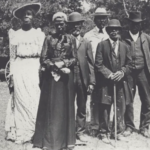Municipal leaders called upon to work with colleges on sustainability planning and skills training
WASHINGTON, Dec. 3, 2014 — Technical and community colleges are the key education partner for communities seeking to build cleaner, safer, healthier and economically viable communities, according to a new report.
A Guide to Climate Resiliency & The Community College, released by the American Association of Community Colleges’ (AACC) Sustainability Education and Economic Development (SEED) Center and the Center on Wisconsin Strategy (COWS), positions two-year colleges as a community’s best resource in addressing the urgent conversations around the impacts of climate change, extreme weather and attendant emergencies. As a workforce developer, a community educator and convener, the community college should be central to designing a coherent and sustainable local response to these threats, say the report’s authors.
“Municipal leaders are charged with mobilizing the community and training workers in climate change-related disaster preparedness and recovery. Two-year colleges are clear partners in setting and meeting local and regional resiliency goals,” said Walter G. Bumphus, AACC president and CEO. “They have the expertise and community relationships to effectively deliver training and community programs that will help rebuild infrastructure, make advances in clean energy and rebound after natural disasters.”
Between 2011 and 2013, the U.S. government spent more than $136 billion in responses to drought, floods, storms and wildfire. As part of the recovery from these incidents, and in preparing for future events, community colleges can develop curriculum and career pathways in a variety of related occupational areas, providing community leadership in prioritizing community needs, and brokering partnerships among community partners to help shape climate action plans.
Community and technical colleges have a proven track record of effectively working with local government, industry partners, workforce intermediaries and community members. They specialize in using market data and business partnerships to identify existing workforce needs and emerging sectors. With a total enrollment of 12.8 million, the nation’s 1,167 community colleges serve almost half of the U.S. undergraduates and offer open access to postsecondary education and workforce training. From community health to clean technology, colleges build career pathways that lead people of all skill levels into family-sustaining jobs—a key component of building resilient communities.
The guide offers a framework for helping college and community leaders take action on local climate resiliency. It provides specific ways community colleges can partner with municipal leaders and community groups, integrate sustainability into educational programming across all disciplines, and access key funding and informational resources. Several case studies offer models for community colleges to follow. The report can be downloaded online at http://theseedcenter.org/ClimateResiliencyGuide.
About AACC
As the voice of the nation’s community colleges, the American Association of Community Colleges (AACC), delivers educational and economic opportunity for 13 million diverse students in search of the American Dream. Uniquely dedicated to access and success for all students, AACC’s nearly 1,200 member colleges provide an on-ramp to degree attainment, skilled careers and family-supporting wages. Located in Washington, D.C., AACC advocates for these not-for-profit, public-serving institutions to ensure they have the resources and support they need to deliver on the mission of increasing economic mobility for all.
About SEED
AACC’s Sustainability Education & Economic Development Initiative (SEED) advances sustainability and green workforce development practices at community colleges by sharing innovative models and free resources to increase the capacity of college leaders, faculty, and staff to build the green economy. The SEED initiative was created in partnership with ecoAmerica and has received support from the Kresge, Flora Family, and Surdna Foundations and corporate partners Bahco/Snap-on and Pearson Higher Education. www.theSEEDcenter.org
About COWS
Based at the University of Wisconsin-Madison, COWS is a national think-and-do tank that promotes “high road” solutions to social problems. These treat shared growth and opportunity, environmental sustainability, and resilient democratic institutions as necessary and achievable complements in human development. COWS is nonpartisan but values-based. We seek a world of equal opportunity and security for all.
RELATED LINKS
http://www.aacc.nche.edu
/PRNewswire-USNewswire/











